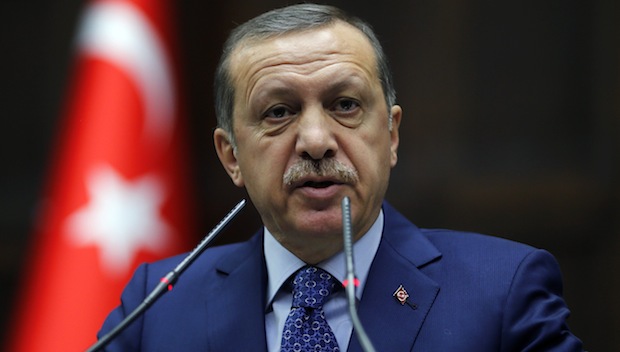In politics, what is worse than making a mistake?
According to the 18th-century French statesman, Charles Maurice Talleyrand, the answer is: doing something unnecessary.
And yet this is what Recep Tayyip Erdoğan has decided to do in Turkey, by tinkering with the constitution to secure himself the title of the President of the Republic.
By all accounts, Erdoğan could be regarded as a towering figure in modern Turkish politics, with many feathers in his cap. A provincial outsider, he has broken social barriers to reach the top of the greasy pole that is Turkish politics without the support of powerful clans and/or a personal military résumé. He has become his nation’s longest-serving prime minister, accounting for 12 years of the 90-year life of the Turkish Republic.
He has scored other firsts. He is the first politician to win three general elections and the first to do so as standard-bearer of a conservative party with “Islamist” accents. Turkey’s annual economic growth rate, averaging six per cent, is another first for Erdoğan. Under his stewardship, the Turkish economy more than doubled in size, achieving in a decade what it had not in eight decades.
Erdoğan also succeeded in clipping the wings of the military, the centerpiece of the so-called “Turkish model,” while taming the country’s fiercely independent judiciary. He also managed to transform the Turkish media, an arrogant tiger since the 1980s, into a docile pussy cat.
Last year, however, Erdoğan decided to risk all that by pushing through a “reform package” designed to transform Turkey from a parliamentary democracy into a presidential one. The idea was that he would become president and pursue his radical reshaping of Turkey, perhaps according to his neo-Ottoman dream, with no fear of hindrance from parliament.
Erdoğan ignored the fact that there was no demand for the changes he proposed. He was promoting a solution to a non-existent problem—in other words doing something unnecessary. In his new epiphany, Erdoğan was redefining his political identity. Having succeeded as a conservative, he now recast himself as a radical who believed he could change things at a blow.
A conservative recognizes the value, if not the total legitimacy, of things as they are, and tries to preserve what is worth preserving while changing things that are past their sell-by date. To a conservative, change is not a value but a method to be used sparingly and with utmost caution. A conservative tackles a few things, and even then, ponderously.
A radical, on the other hand, worships change for its own sake. His motto is “destroy the old to build the new.” He thinks he must tackle everything in a hurry—to “make history,” in other words. Acting out of character, it was as a radical that Erdoğan bulldozed his “reform package” through. Decisions that would have needed months if not years to ponder and discuss with all concerned were taken in an afternoon.
The result of Erdoğan’s haste has been waste. As it prepares for its first direct presidential election in five weeks’ time, Turkey faces a murky horizon, to say the least. Thanks to his powerful election machine, Erdoğan is likely to win the presidency. However, he would do well to cast a second, more careful, look at what he hopes to win. The system he has concocted will make him president, but with nothing like the kind of powers of which he had dreamed.
In one sense, the new system looks much like what France has been saddled with since 1958, when Charles De Gaulle unveiled a Constitution to suit his ambitions. In that system, the president, directly elected, could exercise virtually unlimited power, provided he controlled the Council of Ministers through a prime minister of his choice. But to do that, the president would need to command a majority in the elected parliament.
In the Turkish system that propelled Erdoğan to the top, the man in charge, operating as prime minister, would only need to secure a parliamentary majority in order to implement his agenda. In the new system, the executive president would need a docile prime minister and a cooperative parliament.
However, a docile prime minister would not be able to nudge the parliament in the direction desired by the president, as we witnessed in France. On the other hand, a strong prime minister might simply ignore the president, as has been the case in France on several occasions since De Gaulle’s death. During the six decades of the Fifth Republic, France has experienced “cohabitation” between a president and a parliament representing two opposing parties for a total of nine years. In those years, the president was little more than an ornamental presence. Worse still, on one occasion in the 1970s, the prime minister simply chose to ignore the president, although both belonged to the same party.
In most cases, especially in countries where the democratic system remains fragile, a parliamentary system should be favored over a presidential one. A prime minister who makes a mess of things is more easily replaced by his party or through parliamentary means than a failed president who can only be changed through nationwide elections.
Clever though he is, Erdoğan might have shot himself in the foot. He has dreamed of a system in which, as president, he would operate like the Iranian “Supreme Guide,” claiming the “final word” on all subjects. That kind of pretension, however, does not wash in Turkey—a vibrant democracy with a rapidly growing urban middle class.
Erdoğan may live to regret his strategic error. He changed Turkey for the better, but ended up changing himself for the worse.
